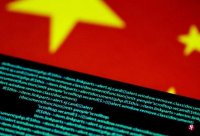
Fisheries in Fukushima Prefecture, which have been depressed in Fukushima in Japan for many years, have gradually improved in recent years, but the government is about to discharge the wastewater after the nuclear power plant has processed into the sea around the summer, causing local fishermen to fall into a sting.
East Japan's 311 earthquake has been 12 years away from, and the tsunami caused by the earthquake has destroyed the Fukushima nuclear power plant.Afterwards, Tokyo Electric Power Corporation (referred to as Dongdian) continued to water the water injection and cooling pile in the safety shell of the unit 1 to 3 of the Fifth Power Station, and then purified the sewage with the "multi -nuclein removal system" (ALPS).
As of June 15, with the transfer of groundwater and rainwater, thousands of storage tanks in the nuclear power plant have been stored about 1.33 million tons of treatment, and the water storage capacity is close to saturation.Due to the frequent earthquake around and the risk of leakage of water storage for a long time, the Japanese government and Dongdian plan to drain the drainage after the completion of the underwater emissions tunnel at the end of June this year.
Dongdian has begun to detect drainage equipment on June 12 to ensure that the treatment of water can be discharged to one kilometer offshore.The Japanese Atomic Energy Regulations also have a three -day final confirmation check on facilities on the 28th.
Dongdian's name, the license of emission treatment water may be issued after the inspection work is completed.Japanese media speculate that the drainage project will be launched as soon as July and will take 30 or 40 years.
 />
/>
After the Japanese government announced the drainage plan in 2021, the protests at home and abroad have never stopped, but the Japanese Prime Minister Kishida Kishita attended the earthquake commemorative event in Fukushima in March this year: "In order to realize the reconstruction of Fukushima, the treatment of water treatment is treated with water treatmentIt is a topic that cannot be postponed. "He also pointed out at the Senate meeting in March that" time is unchanged "to drain water into the sea this spring to summer.
In order to fight for public opinion support, in mid -December last year, the Japanese government began to advertise and pave the way for the safety of water treatment on newspapers and televisions, and abandon the words "radiation water", "nuclear sewage" and "nuclear waste water" of FukushimaInstead of using "ALPS treatment water" and "purification treatment water".Dongdian also has a page on the official website to publish information with Japan, South Korea, China, and Britain, and reiterates that the amount of radiation contained in the treatment of water has a little impact on humans and the environment.One thousandth.
The Japanese embassy in Singapore replied to the United Morning Post inquiring that the Japanese government will never discharge nuclear waste water beyond regulatory standards into the sea, and urge the media to suspend these "false expressions".The spokesman for the embassy said: "The use of 'nuclear sewage' and 'nuclear waste water' in the report will cause misunderstandings and harmful rumors, which makes people think that the discharge water exceeds regulatory standards and is harmful to humans and the environment."
After official efforts, the results of the investigation released by the Ministry of Economics and Industry in February show that the support rate of residents of Fukushima County's discharge treatment of nuclear power plants has increased from 46%in September 2022 to 51%.Regional support rates increased from 44%to 46%.
Asahi Shimbun conducted a public opinion survey in March of this year, and for the first time, more people agreed with Fukushima to deal with water. It was beneficial. Agree with 51%and 41%disagreed.In the two years of polls, the proportion of agreed and disagreed.
However, the seafood captured from the surrounding waters has been exceeded from time to time, making it difficult for the outside world to be completely at ease.The last time was on June 5th, Dongdian issued a report that the seafish Black Rockfish (CAESIUM), a seafish in the Fukushima Nuclear Power Station Harbor, exceeded the standard.Times.
The physicist Tian Odang went deep into the Fukushima Restaurant Village to detect soil radiation after the nuclear accident.In an interview with Lianhe Morning Post, he said that the influence of nuclear radiation was long -term. After the accident, Fukushima residents were in a vortex of confusion, contradictions and anxiety, and were deeply disturbed by invisible radiation.


Fukushima was originally developed in Japan's natural organic crops, and seafood was also very rich.However, after the nuclear accident, the local children were told to wear a mask and not to touch the soil. People were confused about whether they should eat vegetables grown in Fukushima.
Tianwei revealed that in order to protect children from radiation, some families divide the elderly and children in the family to eat vegetables of different programs.An old grandma told Tianwei: "Anyway, I can't live for a few years, and it doesn't matter if you eat it."
The Japanese Fisheries Association is also worried that once the water treatment water will enter the sea, it will plunger the image of Japanese fishery.A 69 -year -old fisherman in Xiangma City told the United Morning Post that Dongdian had guaranteed the fisheries in 2015 that he would not drain into the sea before he did not obtain the understanding of fishermen.
The fisherman who did not want to be named said: "The fishing activity of fishermen has just returned to normal, and the official made such a decision, which made us very disappointed ... Even if the data of the government was safe, it was safe to deal with waterHarmful theory will still damage the reputation of fishery. "
Singapore diners choose to avoid avoiding
Even though scientific data shows that most of Fukushima's crops and fishery are safe, Singapore consumers are still difficult to defeat the anxiety and concerns in their hearts in front of the dining table.
Japanese company PARCO cooperated with six Japanese cuisine restaurants. In June, the 66 -day Fukushima ingredients promotion was launched at the Tanjong Pakaya 100AM Shopping Center.In addition to sending a gift bag containing Fukushima ingredients on the first day of the event, and launching games with "answering questions and sending rice", the restaurant also cooperated with the launch of dishes cooked with Fukushima Seafood and vegetables.
One of the event planners told Lianhe Zaobao that the public who received the gift bag praised "Vegetables look fresh and delicious."However, some restaurants participating in the event privately revealed that only three or four guests were used to use Fukushima dishes every day, and they were Japanese diners.Although the waiters also tried to recommend Fukushima dishes to local diners, they were all declined.
The manager of another restaurant calls on consumers not to worry too much.The store manager asked anonymous because he did not obtain a restaurant owner's permission.She said: "I must have confidence in the review procedures of the Singapore government ... Foods that can enter Singapore will have a quality assurance." She revealed that she sometimes uses the fruits and fruits of Fukushima into juice and praise the fruits and vegetables of Fukushima to clearly clear the fruits and vegetables on the island.sweet.
National University Expert: Fukushima is strictly controlled with radioactivity, which is significantly reduced
The Singapore National University Nuclear Energy Research and Safety Initiative (SNRSI) responded to the United Morning Post inquiring that the Fukushima fish, which was found to have exceeded the standard, has been significantly reduced, and the exports of Fukushima Aquatic Products have been strictly controlled."The risk of health problems in Singapore is almost the risk of healthy foods.zero."
But the public interviewed still chose to avoid.Wang Yiying (in his 40s, counselors) who loves Japanese cuisine believes that existing technology may not be able to fully monitor the damage of water to marine life and environment.For safety reasons, she will still avoid buying seafood produced in Fukushima.
Lin Peiying (25 years old, student), who has just returned from Japan recently, also said that unless she has to be forced, she will still tend to choose ingredients produced in other regions.
For the security guarantee of scientists, the 74 -year -old retired person Yang Ruoquan deeply doubts.He told Lianhe Zaobao: "Since the nuclear accident occurs, nuclear power plants have exploded various problems. It is difficult for me to believe this data. There must be business benefits behind this."
Yang Ruoquan plans to travel to Sapporo with his family in September this year, and said worried: "Sapporo and Fukushima are not far away. I am worried that I will accidentally eat food from Fukushima, so I will confirm the food that the entrance is as much as possible.Origin. "
The effectiveness of the nuclear filtering system is questioned
The reliability and stability developed by Japanese enterprises have been questioned by the outside world, and the influence of radioactive nuclein (Tritium) that parties cannot effectively filter the system on the human body and the environment areHow much argument is endless.
The Fukushima Nuclear Power Plant currently uses ALPS filtering in October 2012, which is developed by Japanese company Toshiba to contact the cooling water of the melting core.This system is enabled after 5 months of development. It is said that 62 radioactive nuclein can be filtered.
Shaun Burnie, a senior nuclear commissioner in the Green Peace Office, questioned the effectiveness of Japan's ALPS.In an interview, Bernie said that Purolite, a leading company in American resin separation technology, was the initial developer of ALPS, but Dongdian gave up cooperating with Purolite to cooperate with Toshiba with no relevant experience. In the first five years after use, the first five years after the use, the first five years after use, the first five years after use, the first five years after use, the first five years after use, the first five years after use, the first five years after use, the first five years after use, the first five years after use, the first five years after use, the first five years after use, the first five years after the use, the first five years after the opening, the first five years after the use, the first five years after use, the first five years after use,The concealment system failed to purify the sewage to the problem that meets the safety standards.
Although the system improved the system after the Japanese side, Berni accused Dongdian of not announced the replacement frequency of ion exchange resin filter element, the starting concentration of the nuclein in the water, and only extracted 30 liters of 30 liters before the storage tank was fully loaded.The sample is tested, and the total amount of nucleo in the water is calculated based on this.
Bernie said: "Showing ALPS's effectiveness is one of the most important tasks of Dongdian, but they have not showed that the system can successfully operate large -scale operations ... So far, the evidence that they succeed is very limited."
Dongdian replied to the United Zaobao inquiry that in order to ensure the representativeness of the laboratory sample, the researchers would ensure that the water in the storage tank had circulated and stirred for more than 144 hours before the sampling.In addition, before processing water into the sea, the East Power Association publicized the initial component of the nuclein contained in unprocessed water.The International Atomic Energy Agency (IAEA) and third -party expert institutions appointed by the Japanese government and Dongdian will further verify these data.
As for the difficulty of being separated from the water, the Japanese government has repeatedly emphasized that before the drainage enters the sea, the water treatment will be filtered secondary and diluted the concentration of the water in the water to one of the 40 -in -one in Japan's safety standards, that is, the world, that is, the world, that is, the world, that is, the world, that is, the world, that is, the worldOne -in -seventh of drinking water standards for sanitary organizations.
Dongdian also used the nuclear power plant to treat water, abalone, and seaweed to prove that there is no significant impact on the aquatic products.According to their research, the concentrations contained in these fishes, abalone and seagrass will decrease over time.
Kai Vetter, a professor of nuclear engineering at the University of California, with 30 years of nuclear measurement experience, agrees with Dongdian's conclusion and urges people to discuss rationally.Witt reminded during an interview with Lianhe Morning Post that there are naturally some radioactive substances in the environment, and the human body and fish also contain these substances.After handling the water discharge, the concentration of the 度 will be further diluted by a large amount of seawater, and eventually "the risk caused by the environment, fish and humans is very low."
SNRSI also said: "In theory, if you eat or inhale a large amount of crickets, it will cause harm to the human body.
The so -called half -life means that the radioactivity of the 氚 will fall to half of the original value within 40 days.
However, Lin Wuhui, deputy dean of the Ocean University of Guangxi University in China, warned in an interview that 氚 is an artificial radioactor, which can emit β -rays through decay and cause ionizing radiation hazards to biological and environment.
He said that in recent years, research has found that after organizing organisms entering the human body, it has stayed longer and harmful.However, this is a frontier research field, and related scientific research is still insufficient.
Lin Wuhui believes that it is necessary for the outside world to pay attention to the reduction of radioactive nuclein concentration before the sea."How to judge this question? How to regulate? Alps can reduce the total emission of radioactive nucleo, and although simple dilution can change the concentration, there is no way to change the total emission."
The credibility of the nuclear waste water will be frustrated and angered the neighboring country
In the early days of nuclear accidents, Japan was scandals in nuclear waste water, and their credibility was severely frustrated.Japan has been approved as a "nuclear credit bankruptcy", and now it is difficult to deal with the understanding and support of the neighbors to handle the water in Fukushima.
Jamie Quinton, dean of the School of Natural Sciences of Messi University of New Zealand, said in an interview with Xinhua News Agency that as early as April and May 2011, Japan had poured some unsolvily nuclear sewage into the sea forFor more water storage space, this kind of arbitrarily dumped without treatment nuclear sewage has already buried the seeds of unwilling.
Dongdian's early supervision of Fukushima was also criticized.Although the detection of scientific researchers on seawater showed that Fukushima nuclear sewage was likely to be leaked, Dongdian finally admitted until July 2013, and then found that the welding part of the water storage tank was corroded.In the second month, Dongdian discovered that as many as 300 tons of high concentration of high concentration of radiation sewage was leaked into the sea; in February 2014, 100 tons of sewage leakage was because Dongdian forgot to close the water valve.

Some countries have put forward strong criticism for the treatment of water rows.When Fiji Vice Premier Camiki Micharga recently questioned the relevant motion in Congress: "If the treatment of water filtered by ALPS is so safe, why not use these nuclear pollution water in its own country and its national agriculture and other fields?"
Chinese official media reported that the Fukushima's processing of water is strongly worded. It criticized Japan for "being alone", "selfishness" and "unintentional heart", referring to Japan's "nuclear credit bankruptcy".The Chinese Foreign Ministry spokesman also squeezed two years ago, asking Japanese officials to drink and deal with water before talking about safety.
Fukushima's processing water is even more unexpected to become the Korean讦 讦 讦.From time to time, protests in South Korea protested the demonstration of the water, and the Korean government once called the Japanese ambassador to protest.However, after the recent recovery with Japanese relations, the South Korean government sent experts to visit Japan to inspect and indicated that "seawater is safe", but the opposition party bombarded the people.




